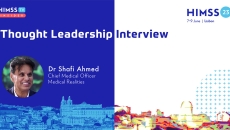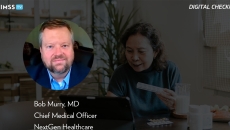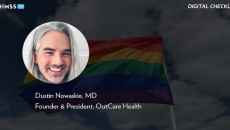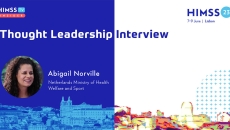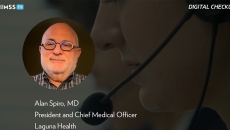HIMSS TV
Saudi Arabia's Ministry of National Guard Health Affairs broke records by achieving HIMSS stage 7 in four models concurrently. Raed Alhamze explores the impact on patient outcomes.
Anjali Kataria, Mytonomy CEO and cofounder, says that content streaming and AI can empower patients at home and help hospitals and health systems improve their patient education materials as they reduce the time nurses spend answering questions.
Romel Khalife, UAE and Kuwait GM at Oracle Health shares his insights about the company's vision, highlighting its role in promoting security, reliability, innovation, and resource planning, all within a single strategic framework.
According to the UK's Dr Shafi Ahmed, to meet the workforce squeeze, health systems need to plan better, change training radically and introduce flexible career paths that allow for periods of teaching or innovating.
The commitment to telehealth from CMS offers medical specialties the freedom to innovate and provide better and more equitable care, says Dr. Robert Murry, chief medical officer of NextGen Healthcare and a practicing family physician.
According to WHO-Europe's David Novillo Ortiz, four key e-health strategies (tech guidance, enhancing capacity, knowledge exchange and scaling up things that work) are deploying to address workforce and health equity challenges across the region.
OutCare Health provides resources, support, education and research studies to support and improve the LGBTQ+ community's care experience. Dr. Dustin Nowaskie, the company's founder and president, explains.
Digital twin technology can equip clinicians with the ability to predict adverse outcomes – whether in health or operations – and in turn enable early interventions, says Dr. Mohamed Rehman of Johns Hopkins All Children's Hospital.
According to the Netherlands Ministry of Health, Welfare and Sport's Abigail Norville, there is a need to foster and train our existing healthcare workforce to operate in new ways as healthcare evolves.
Dr. Alan Spiro, president and CMO of Laguna Health explained how research done in conjunction with NorthShore University Health System showed that using telehealth to address "life context factors" can improve access and reduce costs.




